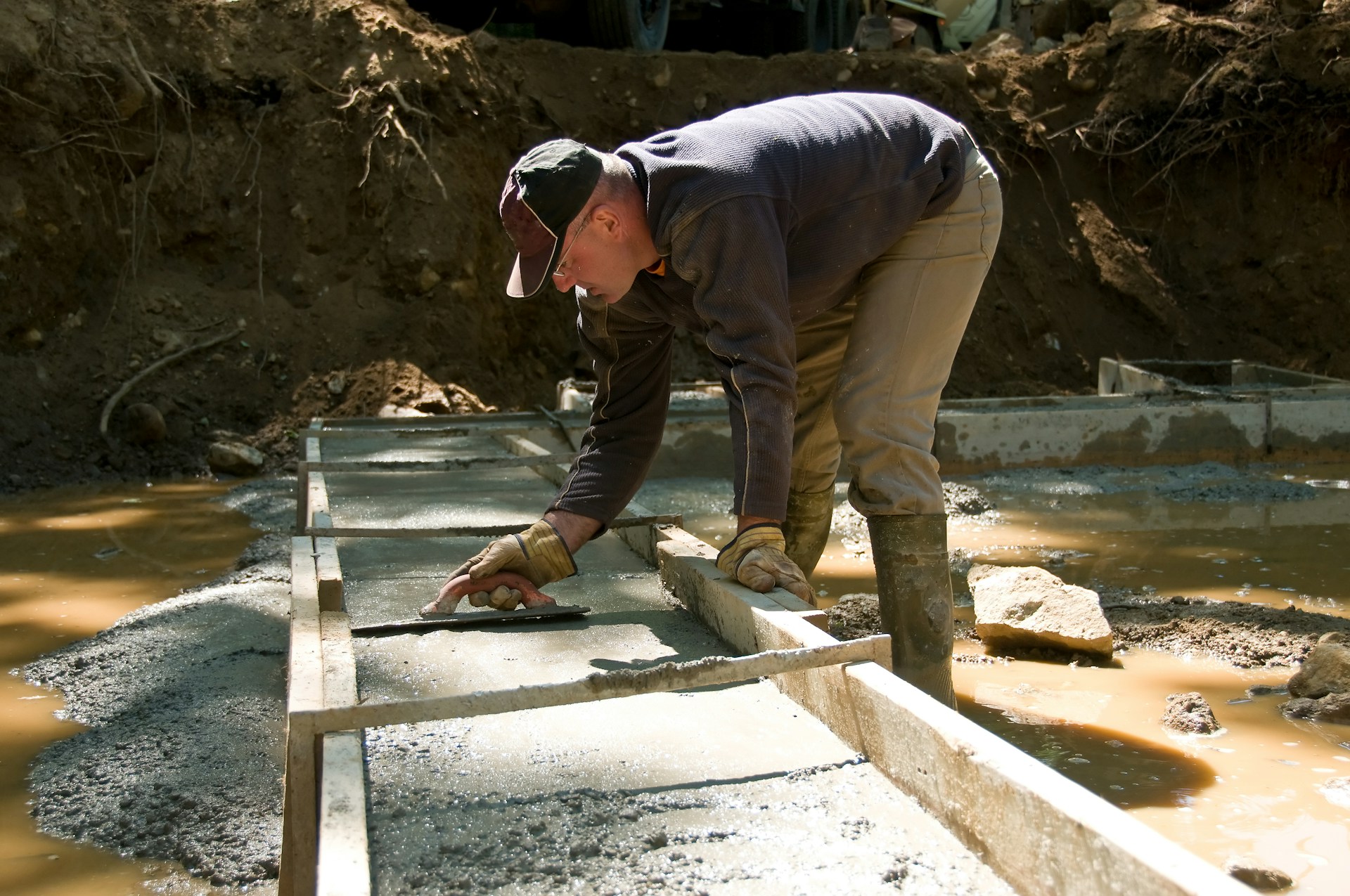Why Florida Homes Settle: It Starts With the Soil
Florida homeowners often worry about dramatic issues like sinkholes, but the real danger usually lies much closer to the surface. The shallow soil beneath your home—what geotechnical engineers call the “zone of influence”—is the primary support system for your foundation. For most Florida homes, this zone extends just 5 to 15 feet deep. That means what happens in the top few feet of soil can make or break your home’s stability.
In this guide, we’ll explain:
- Why shallow soils matter more than deep ones
- Common Florida soil problems
- How to spot early warning signs of foundation damage
- Proven, cost-effective ways to protect and repair your foundation
Learn more about our foundation repair services here.
What Is the Soil “Zone of Influence”?
Think of your home pressing down on a mattress. The top layers bear most of the weight. In the same way, shallow soils directly under and around your foundation carry the load of your home. These layers are highly sensitive to water, temperature, and compaction. When they shrink, swell, or shift—your house moves with them.
Shallow soils in Florida are typically made up of:
- Loose, sandy fill
- Expansive clays
- Organic materials like peat or muck
These materials are less stable than deeper soil layers, and more likely to change with weather and moisture. This makes them the leading cause of foundation damage in the state.
Why Deep Soil Isn’t the Problem (Usually)
The deeper you go, the less stress your house puts on the soil. For single-story homes, anything below 15 feet often doesn’t feel the pressure. So, while there may be soft clay or limestone voids deep below, it’s the shallow soil that makes the biggest impact.
Example: A weak clay layer 3 feet under your home will cause far more damage than a void 30 feet down. That’s because it’s actively supporting your foundation.
Florida’s Most Problematic Shallow Soils
1. Loose or Uncompacted Fill
- Common in new construction
- Causes gradual sinking as it compresses under your home’s weight
- Often leads to voids under concrete slabs
2. Expansive Clays
- Found in Ocala, the Panhandle, Safety Harbor, and Dunedin
- Swell when wet and shrink when dry
- Create a yo-yo effect that cracks foundations and slabs
3. Organic Soils (Peat & Muck)
- Common in coastal or previously swampy areas
- Compress or decompose over time
- Can cause long-term, uneven settlement
4. High Water Table Fluctuations
- Saturates soil during rainy seasons, weakening support
- Dries out during droughts, causing soil to shrink
- Frequent in flat, low-elevation areas of Florida
5. Sinkhole-Prone Limestone Voids
- Common in Central Florida
- Rare but catastrophic
- Even minor underground erosion can lead to surface collapse if shallow soils funnel into the void
Is your home showing signs of any of these soil issues? Schedule a free inspection.
Warning Signs of Foundation Trouble
Watch for these telltale symptoms:
- Cracks in walls, bricks, or floors
- Sticking doors or windows
- Sloping or uneven floors
- Stair-step cracks in masonry
- Gaps between walls and ceilings
These are signs your shallow soil is shifting. The sooner you catch them, the easier (and cheaper) the fix.
Top 5 Ways to Stabilize Your Florida Foundation
1. Soil Testing and Site Prep (Before You Build)
- Have a geotechnical engineer test your soil before construction
- Replace or treat weak layers like peat, clay, or loose sand
- Compact fill soil to reduce future settling
2. Manage Moisture With Drainage
- Grade landscaping so water flows away from your foundation
- Install gutters, downspouts, and splash blocks
- Fix plumbing leaks and prevent AC condensate from soaking the soil
- Maintain consistent moisture levels around your home year-round
3. Deep Foundations (Piers and Piles)
- Transfer weight from weak surface soil to deeper stable layers
- Steel helical piers or push piers are common in Florida
- Used in both repairs and pre-construction stabilization
See how Helicon uses helical piers to stop settling.
4. Ground Improvement and Soil Stabilization
- Compaction grouting: Inject cement grout to densify loose soil
- Structural polyurethane foam: Expands to fill voids and lift concrete slabs
- Chemical grouting: Binds and strengthens soils chemically
Explore Helicon’s soil stabilization services
5. Regular Monitoring and Maintenance
- Check for new cracks, sticking doors, or sloping floors
- Watch landscaping and water flow near your home
- Schedule inspections every few years to catch issues early
Think all foundation repairs are expensive, extreme, or only needed for major damage? Think again.
In this quick video, our CEO, Jay Silver, debunks 5 of the most common foundation repair myths — and explains why understanding Florida’s shallow soil issues is the key to avoiding costly mistakes.
Why Early Action Is Cheaper and Smarter
Small issues become big expenses when ignored. Addressing soil instability early with grouting or piers is significantly cheaper than full foundation replacement. It’s like fixing a small leak before it floods the house.
Get a free foundation inspection today.
The Helicon Advantage: 20+ Years of Florida Soil Expertise
At Helicon, we’ve spent two decades helping homeowners across Florida keep their homes safe and level. Our team understands the complex soil makeup across Tampa Bay, Orlando, Fort Myers, and Naples. Whether you need foundation repair, soil stabilization, or concrete lifting, our solutions are custom engineered for Florida conditions.
We use the latest technologies, offer free inspections, and back our work with industry-leading warranties.
Final Thoughts: Florida Homes Need Florida Soil Solutions
Your home is only as strong as the ground it sits on. In Florida, that means paying close attention to the shallow soil zone. Loose fill, clay, muck, and high-water tables are the usual culprits behind foundation damage—but you can take control.
With proactive care, expert help, and proven repair methods, you can ensure your home stays safe, stable, and valuable for decades to come.
Need expert advice? Request your free inspection from Helicon today.





